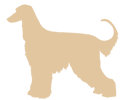ArthurAva's Kennel
10 Game-Changing Strategies for BSN Students to Succeed in 2025
Nursing school in 2025 isn’t what it used to be. With more rigorous clinical expectations, evolving healthcare technology, and heightened emphasis on leadership and critical thinking, BSN students must do more than memorize textbooks. The modern nursing curriculum demands adaptability, collaboration, and a deep understanding of real-world healthcare challenges.
Whether you're just starting your program or nearing the finish line, staying organized and informed can make all the difference. Resources like BSN Class Help offer essential academic support for students looking to stay ahead without sacrificing their well-being.
Here are 10 practical strategies to help you excel in your BSN journey—designed for the demands of today and tomorrow.
1. Prioritize Time Management with Clinicals and Coursework
Between clinical rotations, simulation labs, study sessions, and exam prep, BSN students juggle a lot. The best way to stay on top of your commitments is to use time-blocking techniques.
Use apps like Google Calendar, Trello, or Notion to break down your daily tasks. Include everything from classes to breaks, giving you a visual representation of your schedule and minimizing burnout. Prioritize harder subjects or assignments when your energy is highest—typically earlier in the day.
Don't forget to schedule time for NCLEX prep, clinical debriefings, and your own wellness routines.
2. Use Professional Writing Help When It Matters Most
Academic writing in nursing programs can be uniquely demanding. Research papers, evidence-based practice assignments, and policy proposals all require mastery of APA format, scholarly tone, and critical thinking.
When you're swamped with clinicals or multiple deadlines, reaching out to expert nursing paper writers can ease your load. They can help craft high-quality papers that meet your program’s expectations, ensuring you don’t compromise on performance due to time constraints.
Remember, academic support doesn’t replace learning—it enhances your ability to manage complex workloads effectively.
3. Understand the Purpose of Reflection-Based Assignments
Courses like NURS FPX 4005 focus heavily on reflection and leadership. These assessments aren’t just theoretical—they’re designed to help you think critically about your role in healthcare teams and how to lead collaboratively.
The nurs fpx 4005 assessment 1 specifically challenges students to evaluate their communication, conflict management, and leadership approach during interdisciplinary collaborations.
To succeed in these assignments:
-
Be honest and thoughtful in your reflections.
-
Use leadership models like transformational or servant leadership as frameworks.
-
Draw on real clinical experiences whenever possible.
4. Study Smarter, Not Harder, with Modern Tools
Traditional study methods just don’t cut it anymore. Instead of rereading chapters, embrace active learning strategies with tech-driven resources.
Some tools BSN students swear by:
-
UWorld and NurseThink for NGN-style NCLEX questions.
-
Anki for flashcards using spaced repetition.
-
SimpleNursing and Picmonic for visual learners.
-
Quizlet Live for collaborative review.
Set up weekly self-assessments to track progress and ensure your prep is aligned with NGN clinical judgment formats.
5. Develop Research Literacy Early in Your Program
Many BSN assignments now require critical evaluation of current literature. Understanding research design, data interpretation, and study relevance is crucial for evidence-based nursing practice.
The nurs fpx 4025 assessment 1 is a great example. It asks students to dissect a research study and assess its credibility, purpose, and clinical applicability.
Tips for mastering these tasks:
-
Use databases like PubMed, CINAHL, and EBSCOhost.
-
Focus on peer-reviewed, recent articles (within 5 years).
-
Brush up on research terminology—think “sample size,” “bias,” “validity,” and “statistical significance.”
These skills will serve you far beyond your nursing degree.
6. Make Mental Health a Priority
Burnout is real, especially for nursing students who often overlook self-care. You’re constantly giving—to your patients, your professors, your peers—but rarely to yourself.
To avoid stress overload:
-
Practice mindfulness with apps like Headspace or Insight Timer.
-
Get regular sleep—even if that means skipping one late-night cram session.
-
Schedule breaks during study hours to walk, stretch, or hydrate.
-
Don’t hesitate to talk to a counselor—many nursing programs offer free mental health support.
The better you care for yourself, the better you’ll perform academically and clinically.
7. Build Your Clinical Judgment Through Simulation
As the Next Gen NCLEX emphasizes clinical judgment, simulation training has become more critical than ever. Schools now use virtual and physical simulation labs to test your response to evolving patient scenarios.
Look at your curriculum for courses or assessments that include simulation-based learning. The nurs fpx 4000 assessment 3 challenges students to address ethical and systemic issues—skills that are often assessed through simulation and group work.
To make the most of these sessions:
-
Approach simulations as if they’re real clinical situations.
-
Communicate clearly with your peers and instructors.
-
Reflect afterward on what went well and what could be improved.
8. Network with Professionals and Peers
Networking in nursing school isn’t just for job hunting—it’s essential for staying informed, motivated, and supported.
Ways to build a strong nursing network:
-
Join student nursing associations (like NSNA).
-
Attend healthcare conferences or virtual summits.
-
Connect with mentors through LinkedIn or school-sponsored programs.
-
Participate in study groups and peer support forums.
Your future career will benefit from the connections you build now—whether it’s finding a preceptor, a reference, or a job opportunity.
9. Think Beyond Graduation: Career Planning Starts Now
While it’s tempting to just focus on surviving nursing school, long-term success means planning ahead. Begin preparing your professional profile early.
Steps to consider:
-
Create a polished LinkedIn profile showcasing your skills, clinical experience, and certifications.
-
Keep a log of clinical hours, unique cases, and competencies achieved.
-
Get familiar with specialty certifications and decide what areas you might want to pursue—ER, ICU, pediatrics, public health, etc.
-
Start researching nurse residency programs and employers in your area of interest.
Laying this groundwork early ensures a smooth transition into the workforce post-graduation.
10. Embrace Leadership at Every Stage
Nursing isn’t just about bedside care anymore. Today’s nurses are researchers, educators, policy advocates, and change agents. As a BSN student, start seeing yourself as a future leader in healthcare.
Take every opportunity to:
-
Lead study groups or class projects.
-
Volunteer for community health events.
-
Engage in policy discussions or nursing advocacy initiatives.
-
Present at school research days or student panels.
These experiences build your confidence and résumé while reinforcing your leadership skills—qualities every healthcare system needs more of.
More Articles:
Nursing School Survival Guide 2025: Strategies for Academic Excellence and Stress-Free Success
Thriving in Nursing School 2025: Tips, Tools, and Strategies for Success
Nursing School in 2025: The Ultimate Guide to Academic Success and Clinical Confidence


